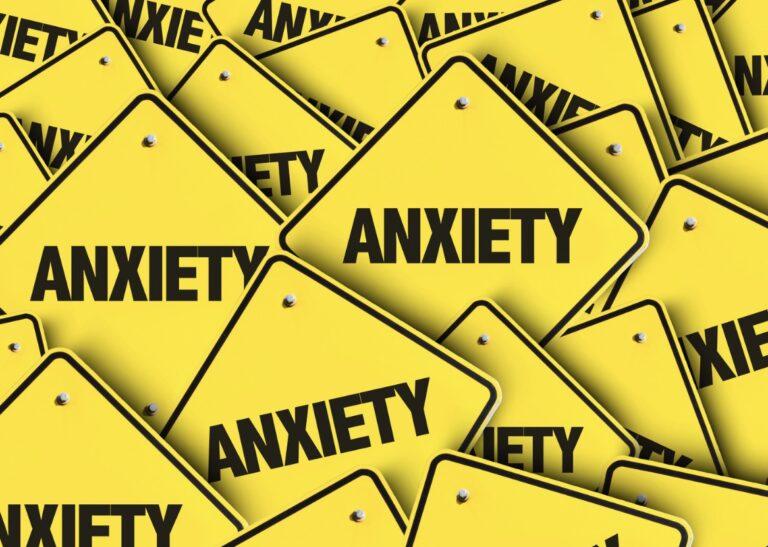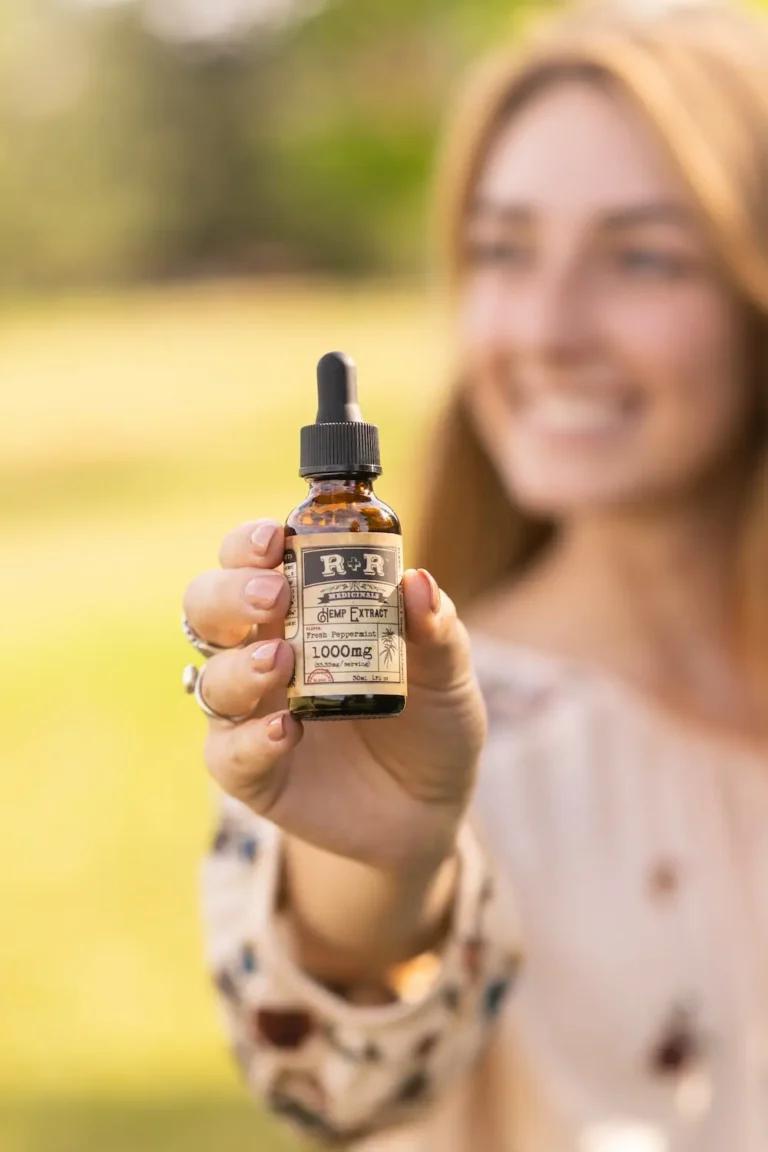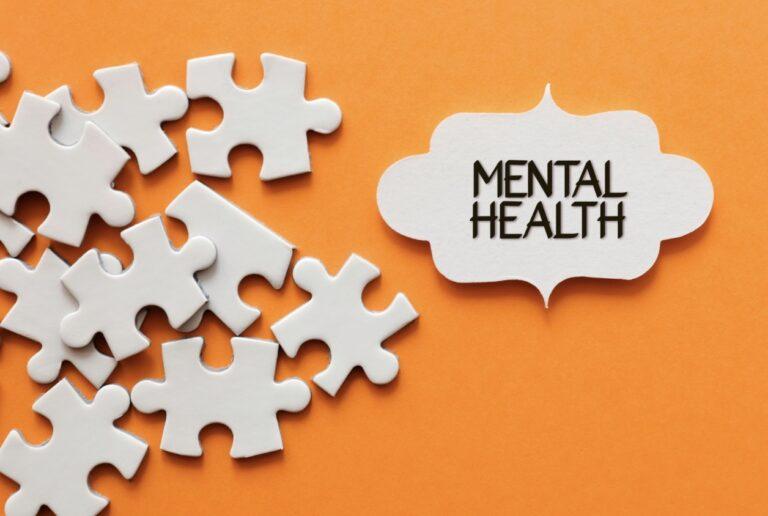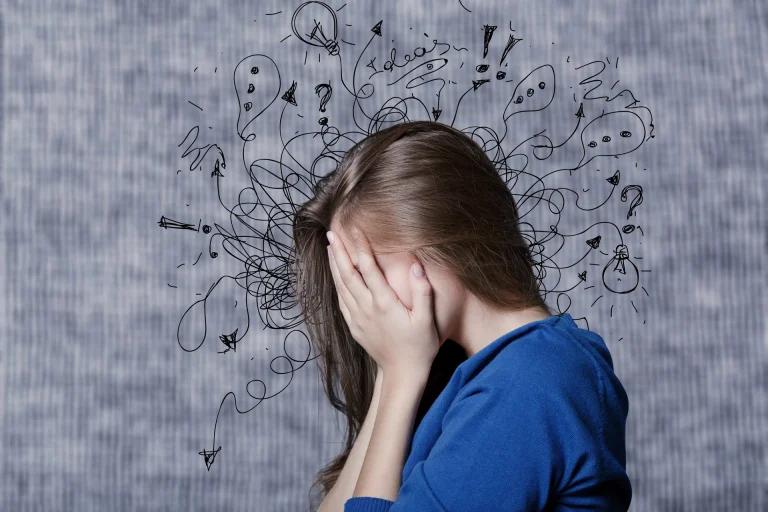Anxiety is a common mental health condition that affects millions of people worldwide. Managing anxiety requires an understanding of its signs and symptoms, as well as techniques for coping with it. In this blog post, we will explore tips and strategies for managing anxiety effectively, seeking professional help when necessary, and preventing future episodes. Whether you are dealing with mild or severe anxiety, the information presented here can be useful in helping you lead a happier life.
Understanding anxiety
Anxiety is a common human emotion that can manifest in various forms, from mild unease to overwhelming fear and stress. It is a natural response to perceived threats or stressful situations and can serve as a protective mechanism. However, when anxiety becomes chronic or interferes with daily life, it may be classified as an anxiety disorder.
Anxiety disorders are mental health conditions characterized by excessive worry, fear, and apprehension. They include generalized anxiety disorder (GAD), panic disorder, social anxiety disorder (SAD), obsessive-compulsive disorder (OCD), post-traumatic stress disorder (PTSD) among others. These disorders often have both genetic and environmental triggers that affect the brain’s ability to regulate emotions properly. Understanding the different types of anxiety disorders is crucial in identifying symptoms early on so that one can manage them effectively.
What is anxiety?
Anxiety is a normal response to stress, but it can become a disorder when feelings of fear and worry are persistent and start to interfere with daily life. Physically, anxiety can cause symptoms such as rapid heartbeat, sweating, trembling or shaking. Psychologically, anxiety can manifest as excessive worry about future events or situations.
Anxiety can cause physical symptoms such as rapid heartbeat, sweating and trembling, but managing stress through techniques like meditation or CBT can reduce its impact on mental health.
If left untreated, anxiety disorders can have a significant impact on mental health and well-being. Managing stress through exercise and relaxation techniques like yoga or meditation may be helpful in reducing symptoms of anxiety. Cognitive-behavioral therapy (CBT) is another effective treatment option for those struggling with an anxiety disorder by helping individuals develop coping skills to manage their fear and stress responses over time.
Types of anxiety disorders
Generalized Anxiety Disorder (GAD) is a common anxiety disorder that causes excessive and persistent worry about everyday events or activities. The fear and stress associated with GAD can interfere with daily life, leading to physical symptoms such as fatigue, restlessness, and muscle tension.
Social Anxiety Disorder (SAD) is characterized by an intense fear of being judged or scrutinized in social situations. This fear can lead to avoidance of social situations altogether, causing significant distress and impairment in one’s personal and professional life.
Panic Disorder is diagnosed when someone experiences recurrent panic attacks – sudden episodes of intense fear accompanied by physical symptoms such as sweating, trembling, chest pain, and heart palpitations. Panic attacks can be extremely debilitating for those who experience them regularly.
Signs and symptoms of anxiety
Anxiety can manifest in physical and psychological symptoms that can be distressing for individuals. Some common physical symptoms may include increased heart rate, sweating, trembling or shaking, and shortness of breath. On the other hand, some prevalent psychological symptoms might involve excessive worry or fearfulness, restlessness, difficulty concentrating, and irritability.
It is essential to recognize these signs and seek professional help if they persist or interfere with daily life activities. Talking to a mental health professional could aid in identifying the root cause of anxiety and developing coping strategies that work best for each individual’s unique circumstance.
Physical symptoms of anxiety
Anxiety can have various physical symptoms that can be overwhelming. Here are some of the most common physical symptoms of anxiety:
- Rapid heartbeat: Increased heart rate is a common symptom of anxiety and can lead to palpitations.
- Excessive sweating: Anxiety can cause excessive perspiration, especially in situations that trigger your anxiety.
- Trembling or shaking: Shaking or trembling is another common symptom of anxiety. It often occurs along with other physical symptoms like rapid heartbeat.
When you experience these symptoms, it may feel like something serious is happening to your body. But remember, they are just a result of your anxious state and will pass once you learn how to manage them effectively.
Psychological symptoms of anxiety
Persistent worry or fear is a common psychological symptom of anxiety. It can manifest as excessive concern about future events, past experiences, or present circumstances and can be difficult to control. Individuals experiencing persistent worry may also develop physical symptoms such as muscle tension and difficulty sleeping.
Difficulty concentrating is another psychological symptom of anxiety that individuals may experience. Anxiety can make it challenging to focus on tasks or pay attention to others during conversations. This difficulty with concentration can interfere with day-to-day activities such as work, school, or social situations.
Irritability is a third psychological symptom of anxiety that individuals may encounter. People who are anxious might feel easily annoyed by minor issues that wouldn’t usually bother them in different situations. They might snap at others more frequently than usual due to heightened sensitivity and stress levels caused by the anxiety they’re feeling.
Tips for managing anxiety
Anxiety can be overwhelming and debilitating, but there are ways to manage it. One effective tip is to practice deep breathing exercises, which can help slow down your heart rate and ease tension in the body. Another helpful technique is to challenge negative thoughts by questioning their validity and replacing them with positive affirmations.
Self-care practices also play a crucial role in anxiety relief. This may include getting enough sleep, eating a balanced diet, staying active through exercise or other physical activities, and setting aside time for hobbies or relaxation activities that bring joy and calmness into your life. By prioritizing self-care practices regularly, you can build resilience against stressors that contribute to anxiety.
Remember that managing anxiety takes time and effort but implementing these tips consistently will ultimately lead to a healthier mindset.
Self-care practices for anxiety relief
Regular exercise, healthy diet and hydration, and maintaining a consistent sleep schedule are essential practices for anxiety relief. These self-care activities can help to reduce stress levels and promote calmness in both the mind and body.
To manage anxiety effectively, consider incorporating these practices into your daily routine:
- Regular exercise: Engage in physical activity that you enjoy for at least 30 minutes a day
- Healthy diet and hydration: Consume nutrient-dense foods like fruits, vegetables, whole grains, lean proteins while staying hydrated by drinking plenty of water
- Maintain a consistent sleep schedule: Aim to get seven to eight hours of quality sleep each night by practicing good sleep hygiene such as setting regular times for going to bed/waking up or limiting screen time before bedtime
Incorporating these practices into your daily life can help you feel more grounded when dealing with anxious thoughts or feelings.
Cognitive-behavioral techniques for anxiety management
Identify and challenge negative thoughts that contribute to anxiety by asking yourself if they are rational or based on evidence. Replace them with positive affirmations, such as “I can handle this” or “I am capable.” Practice relaxation strategies to reduce physical symptoms of anxiety, such as deep breathing exercises, yoga, or progressive muscle relaxation. These techniques will help you control your breathing and slow down your heart rate. Finally, create an exposure hierarchy to gradually confront anxieties in a safe and controlled manner. Start with small steps towards the ultimate goal of facing fears head-on.
By applying cognitive-behavioral techniques for anxiety management like those listed above consistently into your daily routine ,you will begin to develop a sense of confidence in managing anxious situations that arise within your life. Although it may take time and practice implementing these types of strategies over time has been shown through studies to be effective in reducing overall levels of anxiousness experienced by individuals who have learned how to properly utilize them . Remember that everyone’s journey is different but there is no harm in trying new things when it comes down too taking care of our mental health.
Relaxation techniques for anxiety reduction
Deep breathing exercises are a helpful relaxation technique for anxiety reduction. Take deep breaths in through your nose and out through your mouth, focusing on the sensation of air entering and leaving your body. This can slow down your heart rate and calm you down in moments of stress or panic.
Progressive muscle relaxation is another effective way to reduce anxiety. Tense each muscle group, then release it slowly while breathing deeply. Starting from the toes and working up to the top of your head, this technique can help you become more aware of physical sensations while releasing tension throughout the body.
Visualization or guided imagery is a third relaxation technique that can be used to reduce anxiety levels. Close your eyes and imagine yourself in a peaceful setting such as a beach or forest, focusing on sensory details like sounds, smells, colors etc.. This exercise helps shift focus away from negative thoughts by creating positive mental images that promote feelings of calmness and tranquility
Seeking professional help for anxiety
If you are experiencing symptoms of anxiety such as excessive worry, fear, or panic attacks that interfere with your daily life, it may be time to seek professional help. A mental health professional can provide an accurate diagnosis and create a personalized treatment plan for your specific needs.
There are several types of therapy and medications available for anxiety treatment. Cognitive-behavioral therapy (CBT) is a common form of talk therapy that teaches individuals how to manage anxious thoughts and behaviors. Medications such as antidepressants and benzodiazepines may also be prescribed by a doctor to alleviate symptoms. Seeking professional help can greatly improve quality of life for those struggling with anxiety.
When to see a doctor or mental health professional
Recognizing the signs and symptoms of anxiety disorders is essential to managing your condition. However, sometimes anxiety can become debilitating, which may require professional help. Here are some indications that it’s time to see a doctor or mental health professional for your anxiety:
- Panic attacks that occur frequently or out of nowhere
- Symptoms interfering with daily life such as avoiding social interactions
- Intense worry over several weeks that won’t go away
- Physical symptoms like chest pain, heart palpitations or shortness of breath
While self-help techniques work for many people experiencing mild-to-moderate levels of anxiety, they aren’t enough in severe cases. Don’t hesitate to reach out if you find yourself struggling with unmanageable stress and worry impacting various aspects of your life.
Types of therapy and medications for anxiety treatment
Cognitive Behavioral Therapy (CBT) is a common type of talk therapy that focuses on changing negative thought patterns and behaviors that contribute to anxiety. It involves identifying triggers, challenging irrational thoughts, and developing coping strategies. Exposure therapy is another form of therapy where the patient gradually confronts their fears in a controlled environment to reduce anxiety over time.
Selective serotonin reuptake inhibitors (SSRIs) are commonly prescribed medications for managing anxiety. They work by increasing levels of serotonin in the brain, which helps regulate mood and reduce symptoms of anxiety. However, it may take several weeks for these medications to take effect and they can have potential side effects such as nausea or weight gain.
Overall, there are many types of therapies and medications available for treating anxiety. It’s important to seek help from a mental health professional who can provide personalized recommendations based on your specific needs and preferences.
Preventing anxiety
Constant worrying and excessive fear can cause anxiety, which can negatively impact your emotional and physical health. To prevent anxiety, it’s essential to prioritize self-care by getting enough sleep, eating a healthy diet, and exercising regularly. Incorporating mindfulness practices like meditation or deep breathing exercises into your routine can also help reduce stress levels.
In addition to lifestyle changes, building resilience is another effective way to manage anxiety. This involves developing coping mechanisms that will help you bounce back from stressful situations quickly. Practicing positive self-talk, seeking support from loved ones or a therapist when needed, and engaging in activities that bring joy are all proven techniques for strengthening resiliency against anxiety triggers.
Lifestyle changes to prevent anxiety
Regular exercise and physical activity, healthy eating habits, and adequate sleep hygiene practices are crucial lifestyle changes that can prevent anxiety. By incorporating these habits into your daily routine, you can develop a more balanced and resilient lifestyle that supports emotional well-being.
Here are some practical tips to help you get started:
- Regular exercise can reduce tension and promote relaxation. Aim for at least 30 minutes of moderate-intensity exercise every day.
- A balanced diet is essential for overall health. Try to eat a variety of nutrient-rich foods such as fruits, vegetables, lean proteins, whole grains while minimizing processed food intake.
- Getting enough quality sleep is vital for mental health. Create a calming bedtime routine by avoiding electronics or caffeine before bed.
By prioritizing these lifestyle changes in your life regularly, it will help maintain optimal wellness levels while reducing the risk of developing anxiety symptoms altogether.
Building resilience to cope with stress and anxiety
Meditation and mindfulness techniques, social support networks, and stress management strategies can all contribute to building resilience in the face of stress and anxiety.
Research has shown that regularly practicing meditation or mindfulness techniques can help reduce symptoms of anxiety. These practices involve focusing on the present moment without judgment or distraction, which can help calm a racing mind. Additionally, having a strong network of friends, family members, or therapy groups provides an important source of support during difficult times. Finally, learning effective stress management strategies like time management or relaxation exercises can help individuals feel more in control when faced with stressful situations and prevent feelings of overwhelm from escalating into full-blown anxiety episodes.
By incorporating these various tools into their daily routines over time, individuals struggling with anxiety can develop greater resilience to cope with life’s challenges.
Conclusion
In conclusion, managing anxiety requires a multi-faceted approach. It involves developing coping mechanisms that can reduce the intensity of anxious thoughts and feelings. Such techniques include practicing mindfulness, deep breathing exercises, cognitive restructuring and engaging in physical activities like yoga or running.
Additionally, seeking professional help from therapists or medical practitioners is crucial in managing anxiety disorders. This enables the identification of underlying causes of anxiety and development of personalized treatment plans tailored to each individual’s unique needs. With consistent practice and support, those struggling with anxiety can learn to manage their symptoms effectively and lead fulfilling lives.
Sources
Medical Disclaimer
NowPatient has taken all reasonable steps to ensure that all material is factually accurate, complete, and current. However, the knowledge and experience of a qualified healthcare professional should always be sought after instead of using the information on this page. Before taking any drug, you should always speak to your doctor or another qualified healthcare provider.
The information provided here about medications is subject to change and is not meant to include all uses, precautions, warnings, directions, drug interactions, allergic reactions, or negative effects. The absence of warnings or other information for a particular medication does not imply that the medication or medication combination is appropriate for all patients or for all possible purposes.









